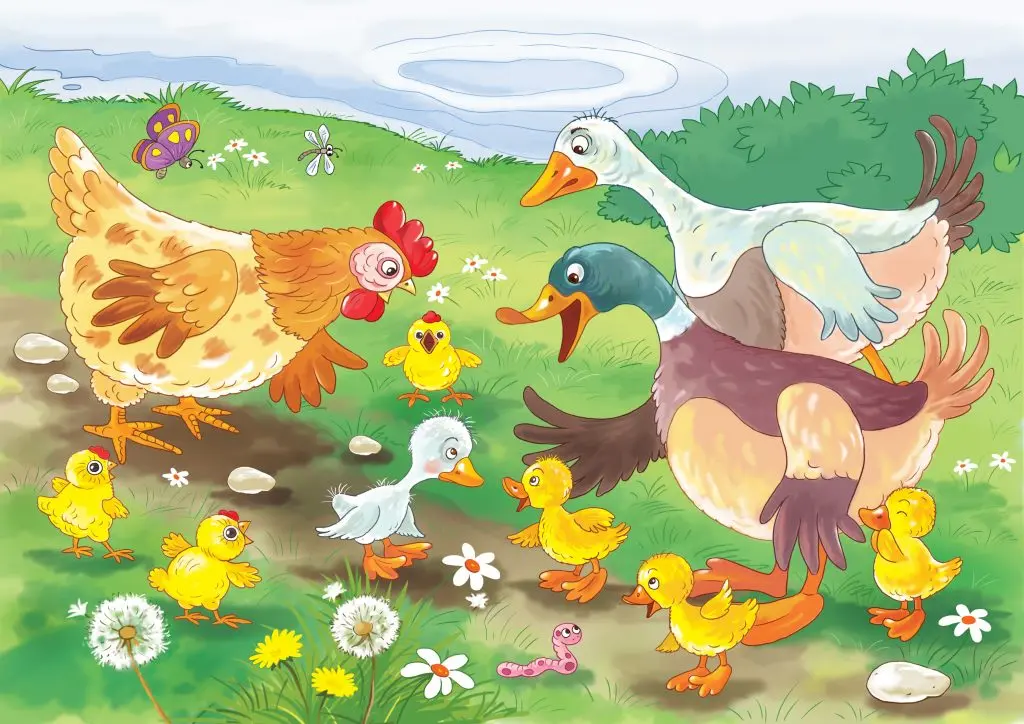This evening I was reading my son a bedtime story and as I was reading it, in between manoeuvring into a position where he could see the pictures laying down and I could still see the words, I started thinking about how Hans Christian Anderson’s fairy tale ‘Den grimme ælling’ – or as you may know it, ‘The Ugly Duckling’ – could be used to illustrate some of the challenges we may face, and how we can help ourselves and others to overcome them.
For those of you not familiar, how on earth do you not know this story?! But also, it starts with a group of eggs that a Mother Duck looks after and when they all hatch, one of the ducklings is much uglier than the others. He’s big and clumsy and his feathers are dull, whereas his siblings are smaller, more agile and have lovely bright yellow feathers. As a result, the ugly duckling is picked on, excluded and bullied to the point where he runs away from his family home.
You can only imagine how sad and lonely he feels at this point. No family or friends, feeling unhappy with his appearance and generally feeling rubbish about himself and his situation. Perhaps some of us have felt the same way at times. We may have alienated ourselves or worse, taken drastic measures to try and change our situation. When we feel like this, we can feel like there is no way out and that it is never going to end.
The story continues… whilst living through a harsh winter alone in a cave, the ugly duckling matures and becomes a fully grown adult. Upon seeing his reflection in the water, he realises that he is not a duck at all but is in fact a beautiful swan, possibly one of the most elegant birds around!

For me, physically, my obvious difference has always been my big ears and big nose. I wouldn’t say I was necessarily ‘bullied’ as a result, but I have certainly developed a thick skin when it comes to insults because of it. One reason I was always able to handle it was because I had family and friends around me who cared about me and knew who I was on the inside, and liked me for it.
Judging people for their outward appearance is something we all do unfortunately, and that is unlikely to ever change. The ugly duckling was only accepted when he became physically beautiful, but that may never happen to us. For example, I’m definitely no swan and, ironically, the only parts of your body that never stop growing are you nose and your ears… so there is literally no hope for me!
But we should fight our urges to judge and be kind to everyone we meet, all those whom we work with and those we come across in every day life. There is at least some good in everyone, whatever they look like, that we can focus on to be kind to others. The truth is, you just don’t know what people are dealing with and a friendly smile or a kind word costs nothing, but can mean the world to someone who needs it.

What about those who may feel like an ugly duckling? It’s easy to fall into all the classic traps of considering yourself worthless and isolating yourself. It’s generally a natural thing for all of us to do when we’re bullied or oppressed in someway but this isn’t the best thing to do. The ugly duckling wasn’t ugly at all, he was beautiful on the outside and, based on the fact that the story doesn’t document any negative reaction from the ugly duckling to the bullying and insults, on the inside as well. We are all the same in that in our own unique way, we’re all beautiful on the inside if not the outside. Time is a healer, and no matter how bad things may seem, given time and help, your thoughts, feelings and emotions will improve over a period of time.
Most importantly, #BeKind to others, and to yourself:
- Keep talking about your feelings with family, friends or your manager at work
- Isolation is not an option, seek out and spend time with people who care about you
- Negative thoughts are going to happen, we all have them but being kind to others can help us feel better about ourselves
- Depression is not something you can control on your own. If you have symptoms, it’s not a weakness to seek help.
If you ever want to talk, then please reach out.


